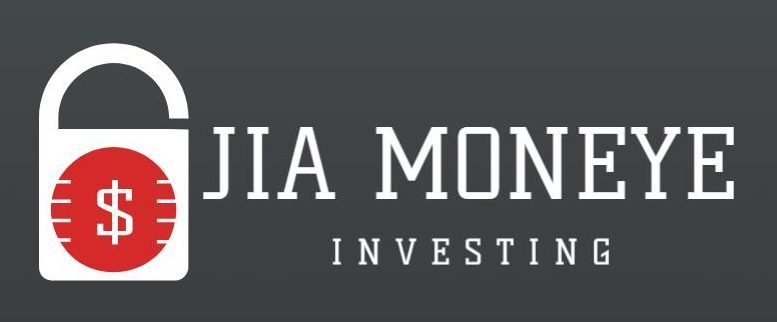
Credit Counseling: Does It Help with Debt?
Understanding the Role of Credit Counseling in Debt Management
Credit counseling is a service that provides guidance and support for those struggling with debt. It is a process that involves educating individuals about the various aspects of credit, including how to manage debt, create a budget, and make sound financial decisions. The primary goal of credit counseling is to help individuals regain control over their financial situation and ultimately, reduce or eliminate their debt. But does it really help with debt? The answer is a resounding yes, but with a few caveats.
Credit counseling agencies are typically non-profit organizations that offer free or low-cost services. They work with individuals to assess their financial situation, develop a budget, and create a plan to pay off debt. This often involves negotiating with creditors to lower interest rates, waive fees, or even reduce the amount owed. The counselor also provides education and resources to help individuals understand their credit report, improve their credit score, and avoid future debt problems.
However, it’s important to note that credit counseling is not a quick fix. It requires a commitment to change financial behaviors and habits. It’s not just about paying off current debt, but also about learning how to manage money more effectively to prevent future debt. This means sticking to a budget, saving for emergencies, and making wise financial decisions. It’s a long-term solution that requires time, effort, and discipline.
Moreover, not all credit counseling agencies are created equal. Some are more reputable and effective than others. It’s crucial to do your research and choose a reputable agency that has a track record of success. Look for agencies that are accredited by the National Foundation for Credit Counseling (NFCC) or the Financial Counseling Association of America (FCAA). These organizations have strict standards for quality and ethical behavior. Avoid agencies that charge high fees, make unrealistic promises, or try to push you into a debt management plan without thoroughly assessing your situation.
While credit counseling can be an effective tool for managing debt, it’s not the only option. Other strategies, such as debt consolidation, debt settlement, or bankruptcy, may be more appropriate depending on the individual’s financial situation. It’s important to explore all options and seek advice from a financial advisor or attorney before making a decision.
In conclusion, credit counseling can indeed help with debt, but it’s not a magic bullet. It requires a commitment to change and the discipline to stick with a plan. It’s also important to choose a reputable agency and to explore all options before making a decision. With the right approach, credit counseling can be a valuable tool in the journey towards financial freedom.
Understanding the Importance of Building a Good Credit History: Essential Steps to Follow
Building a good credit history is a fundamental aspect of financial health. It is a reflection of your financial habits and is used by lenders, landlords, and even employers to assess your financial reliability. A good credit history can open doors to lower interest rates on loans, better chances of getting approved for apartments or jobs, and overall financial stability. Therefore, understanding the importance of building a good credit history and knowing the essential steps to follow is crucial.
The first step in building a good credit history is to understand what it is and how it works. In simple terms, credit history is a record of how you’ve managed your financial obligations over time. It includes information about your payment history, the amount of debt you have, the length of your credit history, the types of credit you have, and how often you apply for new credit. All these factors contribute to your credit score, a numerical representation of your creditworthiness.
The process of building a good credit history begins with establishing credit. This can be done in several ways, such as opening a credit card account, taking out a small loan, or becoming an authorized user on someone else’s credit card. It’s important to remember that the goal is not to accumulate debt, but to demonstrate that you can manage credit responsibly.
Once you’ve established credit, the next step is to use it wisely. This means making payments on time, every time. Late or missed payments can have a significant negative impact on your credit history. It’s also important to keep your credit utilization low, which means not maxing out your credit cards and trying to keep your balance below 30% of your credit limit.
Another key aspect of building a good credit history is the length of your credit history. The longer you’ve been using credit responsibly, the better it is for your credit score. This is why it’s often recommended to keep old credit accounts open, even if you’re not using them, as long as they’re not costing you money in annual fees.
Diversifying your types of credit can also help build a good credit history. This means having a mix of credit cards, retail accounts, installment loans, finance company accounts, and mortgage loans. However, it’s important not to apply for too much new credit at once, as this can lead to hard inquiries on your credit report, which can lower your credit score.
Finally, regularly checking your credit report is an essential step in building a good credit history. This allows you to spot any errors or fraudulent activity that could harm your credit score. You’re entitled to a free credit report from each of the three major credit bureaus every year, and it’s a good idea to take advantage of this.
In conclusion, building a good credit history is a long-term process that requires consistent and responsible financial behavior. By understanding the importance of a good credit history and following these essential steps, you can establish a strong financial foundation that will benefit you in many ways throughout your life.
Mastering the Art of Credit: A Comprehensive Guide to Building a Good Credit History
Credit counseling is a service that provides guidance and support for those struggling with debt. It is a crucial tool in mastering the art of credit and building a good credit history. This service is often provided by non-profit organizations and is designed to help individuals understand their financial situation, create a budget, and develop a plan to tackle their debt. But does credit counseling truly help with debt? The answer is a resounding yes, but with a few caveats.
Credit counseling can be an invaluable resource for those who are overwhelmed by their financial obligations. It provides a clear, objective perspective on an individual’s financial situation, which can be difficult to achieve when dealing with the stress and anxiety that often accompany debt. Counselors can help individuals understand where their money is going, identify areas where they can cut back, and develop a realistic budget that allows them to meet their financial obligations while still living within their means.
Moreover, credit counseling can provide education and resources to help individuals avoid falling into debt in the future. This includes information on how to use credit responsibly, the importance of saving and investing, and strategies for managing money effectively. By providing this education, credit counseling can not only help individuals get out of debt, but also prevent them from getting into debt in the first place.
However, while credit counseling can be incredibly beneficial, it is not a magic bullet for debt. It requires a commitment from the individual to make changes to their spending habits and lifestyle. This can be challenging, particularly for those who are used to living beyond their means. Additionally, while credit counseling can help individuals develop a plan to tackle their debt, it is ultimately up to the individual to implement this plan and stick to it.
Furthermore, it’s important to note that not all credit counseling services are created equal. Some organizations may charge high fees or push individuals into debt management plans that are not in their best interest. Therefore, it’s crucial to do your research and find a reputable organization that has your best interests at heart.
In conclusion, credit counseling can be a powerful tool in the fight against debt. It can provide the guidance, support, and education needed to understand your financial situation, develop a realistic budget, and create a plan to tackle your debt. However, it requires a commitment to change and the discipline to stick to a budget and debt repayment plan. Additionally, it’s important to find a reputable credit counseling service that can provide the help you need without taking advantage of your financial situation. With these considerations in mind, credit counseling can indeed be an effective way to help with debt and master the art of credit.


